By Brooke McKenna Taylor (UC Santa Cruz)
If there is one thing known about me, it is that I love the color green. I love the green found at my home university, in the redwoods, in the seaweed by the seashore, and in the rolling hills. Green in my hometown, Los Angeles, green in the palm trees, in the ocean, and my mother’s eyes.
Barcelona, Spain, does not have a lot of green. The apartments are tall and feature pastel colors of red, blue, and white, with streets lined with grey flower tiles. Large streets are filled with bright yellow taxis and big blue and red buses. Yet still, when I find the green patches of flowers growing on a curb or visit a city park, I smile and take it in. It makes finding these green spaces even more special and at home for me.
When I felt lost in the new language or culture, or overwhelmed by the task of finding food as a vegetarian, I would walk to my terrace to smell the mint leaves from my garden, take a moment to feel the sun on my skin, and begin to search.
Find What Grounds You
A garden, enormous in my backyard, or as small as the green onions and mint that grow roots in a glass jar, has always been a part of me, wherever I go. As much as I was excited to study abroad, I was scared to lose that part of me, my green side.
Barcelona is a different city, a different country. Here, I have no car, surfboard, or waves for that matter. When I need a break or a breath of fresh air, the beach and the garden are my places. In a new city, there will always be a coffee shop (such as the one a block from my house where I write now), a city garden, and a movie theater, but not a hike to search for new mushrooms. I would have new hobbies here, and that scared me a bit.
Six months in a new city, with a new culture and some new hobbies, was a lot for a newly 20-year-old to face. But I learned I could keep my garden with me, a place that reminds me of home, both in California and Barcelona.
If you feel similarly about the unfamiliarity of study abroad, here’s what you can do:
- Identify what grounds you at home. Is it hiking? Cooking? Playing music? Going to the gym? Before you leave, think about what activities make you feel like yourself.
- Research how to continue those activities abroad. You might not find the exact same thing, but you can find something close. No hiking trails? Look for city parks or botanical gardens. No gym membership? Find YouTube workout channels or running routes.
- Give yourself permission to re-create home. It’s not missing out on your study abroad experience to do familiar things—it’s taking care of yourself so you can fully engage with everything else.
Create Your Green Space
My garden began the second week of my program when I started to miss my routine of caring for plants and digging in the dirt. On most Tuesdays, local grocery stores would leave out cardboard boxes or crates for collection, and I began to collect them. I would walk out and see what I could use to create a small garden on our apartment terrace (with the approval of my roommates).
Once I collected a small amount of pots and boxes, I went to a local bodega to buy dirt and a few plants. I found a new friend there, for advice on how to tend to the plants in this new climate. And just my luck, I have a community garden across from me. There, I would see how they plant and compost. I bring my book and watch the volunteers and their children enjoy the green space. I would ask questions about their garden boxes, composting system, and weeding techniques.
Initially, I was nervous to ask questions. My Spanish was still pretty basic, but once we began chatting about our shared interest in the earth, my fear melted. Now I was creating my own green space to cultivate and grow.
If you need to create a green or a similar safe space while studying abroad, here’s what to do:
- Start small. You don’t need to recreate your entire life at home. A small ritual—making coffee a certain way, tending to a plant, journaling on a specific bench—can be enough.
- Use your interests to connect with locals. Shared hobbies transcend language barriers. Whether it’s gardening, sports, art, or music, finding people who love what you love makes building community easier.
- Don’t wait until you’re homesick. Create your routines and rituals early, in your first few weeks. They’ll be there when you need them most.
Give Yourself Time
Just as my garden took time to grow, so did I. With the first pepper I purchased and consumed, I saved its seeds. I was patient to clean and dry them, then stored them and waited about a month for the roots to grow. When I transferred the tiny plants outside, I watered them every other day, covered them with shade on extremely hot days, and pruned the leaves. Without a bit of care, it would have withered just as I could have.
You have to give yourself time abroad, especially in a new culture. I had learned Spanish in college and knew a few words and phrases as a child, but the process of trying to speak the language and understand was frustrating. Why were other people picking it up so fast? Why was I taking so long to adapt to the lifestyle here?
Between months one and three, I began to notice the changes in my confidence. I felt more at ease speaking up and unconsciously understood cultural differences, and then my realization hit me. I needed patience with myself and practice—just as seeds take in nutrients and grow, so do I.
I raised my hand in class more, began conversations in Spanish with strangers in the metro (something I would normally not do), and let myself explore and grow in this city.
If you find yourself feeling like others are adjusting faster than you are, here’s what to do:
- Stop comparing your timeline to others. Some students seem to adapt instantly—speaking the language fluently, making tons of friends, navigating the city like locals. But everyone’s journey is different, and what you see on the surface never tells the whole story.
- Track your progress. Keep a journal or use voice notes to document your experiences. When you feel like you’re not improving, look back at week one. You’ll be amazed at how much you’ve grown.
- Celebrate small wins. Ordered coffee in the local language without switching to English? That’s growth. Found the grocery store on your own? That’s growth. Had a full conversation with your host family? That’s major growth.
- Practice consistently, not perfectly. Just as watering plants every other day is essential, language learning and cultural adaptation require regular practice—not perfection. Make mistakes. They’re proof you’re trying.
Let Your Roots Grow
Just as my strawberries and mint took root in my garden box, I began to take root in Barcelona. Before my trip, I read Rick Steves’ book on Barcelona, which highlighted its history, geography, and culture. I discovered Instagram pages for groups, places, and activities, which helped me find a sense of community before I left.
But there was one fear still in my gut. I am away from my family and my safe community. In California, I have my locations shared with my friends and family, and if I need anything, I know who to call. Now, with a 9-hour time difference, I knew I needed to find my roots here in the city, and as scary as it was, I found them.
My mom always told me, “Better safe than sorry,” and I agree entirely with her. Before I left for Spain, we created an emergency call list together, which included the numbers of my family members, my cousin living in Barcelona, the UCEAP numbers, and the contact information for the police and hospitals in Barcelona. This list, printed out and laminated, I brought with me everywhere I went. Although I never had to use it, it made me feel safe.
Once I met my roommates and the other students on my program, I learned they also felt a bit scared away from home, a feeling universal to us all, but if not spoken, we would never have known. And so, we shared our locations and let the others know when we were going out of town and when we would return, or to say that we arrived safely home. Keeping ourselves safe and happy, and our family happy as well.
To build your safety net:
- Create an emergency contact list before you leave. Include:
- Family members’ phone numbers (with international dialing codes)
- UCEAP emergency contacts
- Local emergency services (police, hospital, fire)
- Your program coordinator’s contact information
- Any friends or family in the region
- Print it, laminate it, and keep it with you. Store it digitally, too.
- Build your local safety network. Share locations with roommates and friends in your program. Create a group chat where you let each other know when you’re traveling or out late. It’s not paranoid—it’s smart.
- Talk about your fears. Chances are other students feel the same way. Opening up about feeling scared or homesick creates connection and reminds everyone they’re not alone.
- Stay connected to home (but not too connected). Find a balance that works for you. Regular check-ins with family can be comforting, but living on your phone can prevent you from being present in your new city.
Take in the Sun
Along with going out and experiencing my study abroad, I made sure to take time for myself, to check in, to bask in the sun. I would sit outside and reflect on my past week. Through journaling, sitting on a bench watching locals pass, and meditating by the garden, I was able to take in the progress and notice my growth.
I would let myself feel my emotions and explore why I felt this way, whether positive or negative. Through reflection, I was able to identify the source of my fears and consider ways to manage them. Most of my solutions involved going with a friend, asking my professor for advice, and cheering myself on.
What better way to learn than to make mistakes? So I would, and soon enough, those mistakes didn’t happen again. My Spanish accent improved, I never took cash out of a non-bank ATM, and always brought a little snack with me wherever I went.
To reflect on your progress:
- Schedule regular check-ins with yourself. Set aside time each week—even just 20 minutes—to reflect on how you’re feeling. Not just what you did, but how you felt about it.
- Name your emotions. Feeling overwhelmed? Lonely? Excited but exhausted? Identifying what you’re feeling helps you figure out what you need.
- Problem-solve with compassion. When something goes wrong (and it will), ask yourself: “What can I learn from this?” and “What support do I need?” Then actually seek that support—from friends, professors, or UCEAP staff.
- Give yourself credit. Studying abroad is hard. You’re navigating a new language, culture, academic system, and social environment all at once. That takes courage. Acknowledge it.
Growing confidence takes time. As I grew a garden on my terrace, I had strawberries bloom, a mint bush that I took home from a mojito, chamomile from a tea packet, and flowers from my friend at the bodega. The pepper plants are just now ready to flower after six months of reaching out roots.
And so am I, blossoming, no longer nervous about my new home, no longer nervous about speaking Spanish and experiencing a new culture. As I reflect on my last month here, I will remember that confidence takes time and that my mistakes helped me grow.
Be patient with yourself, speak to yourself kindly, and, in a few months, you will begin to flower as well.
Study abroad isn’t just about seeing new places or checking items off a bucket list. It’s about growth—the slow, steady kind that happens when you give yourself time, patience, and care.
You don’t have to transform overnight. You don’t have to be fearless. You don’t have to adapt faster than everyone else. You do have to show up, tend to yourself, and trust the process.



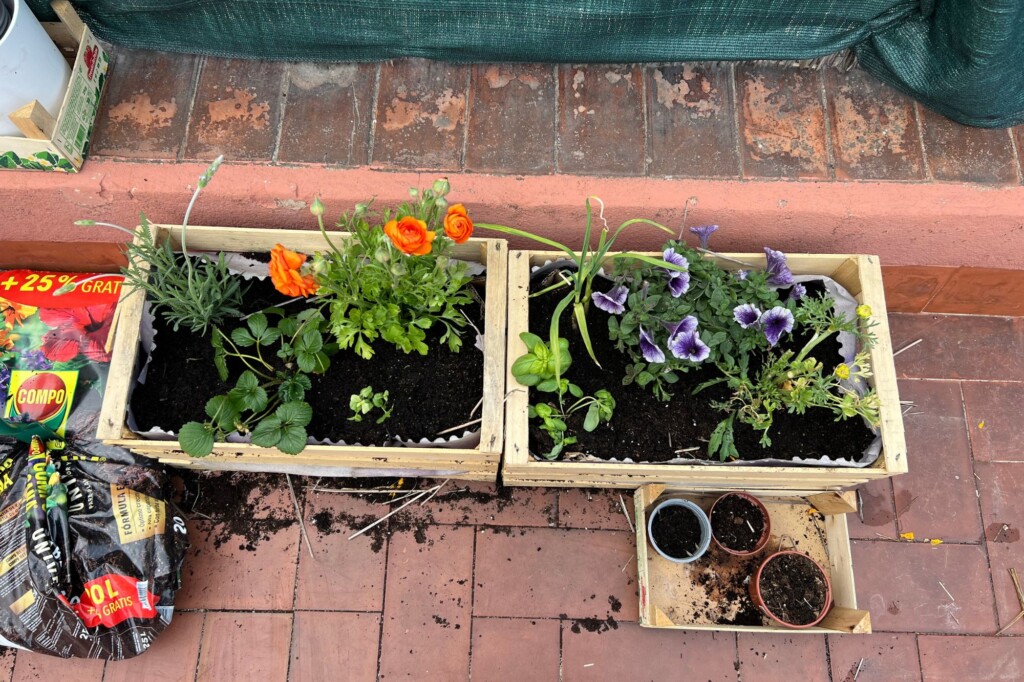
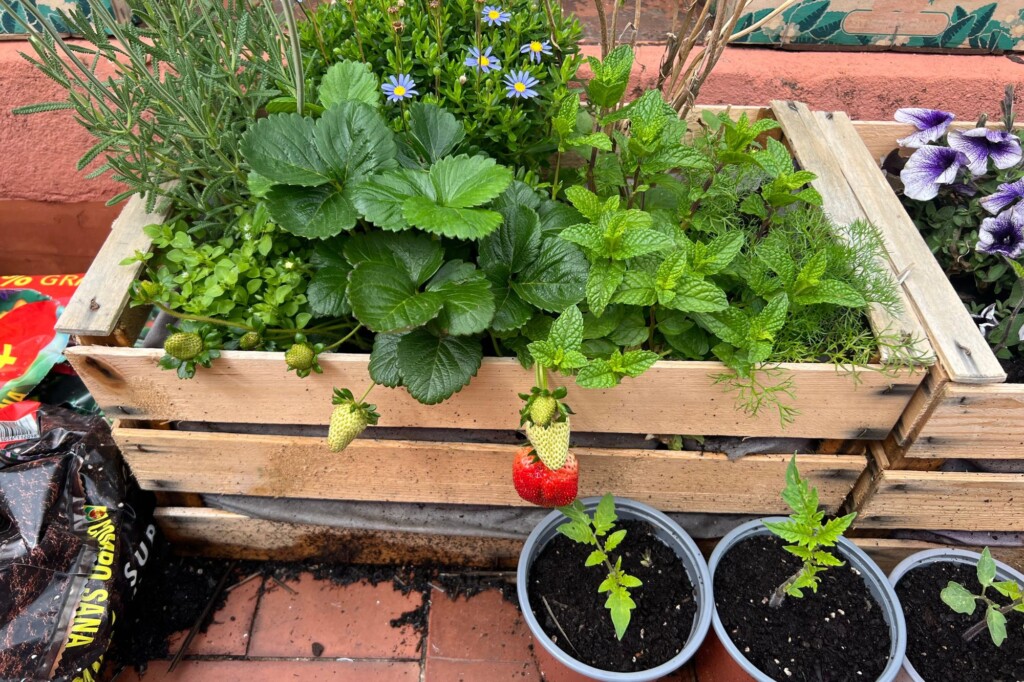
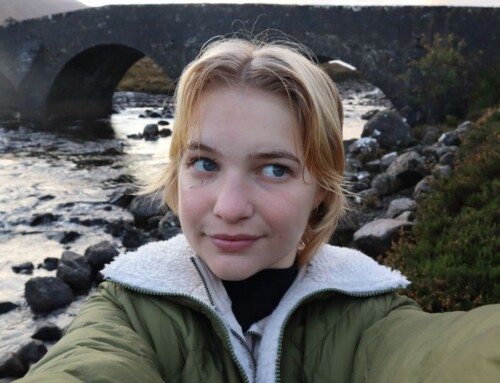
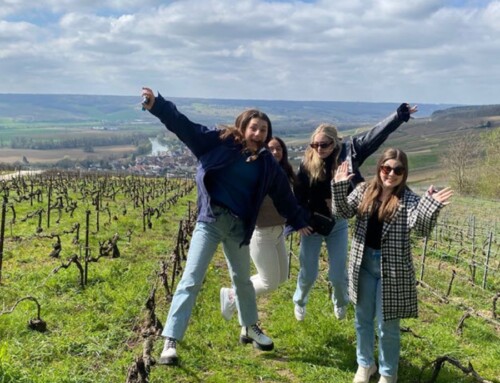

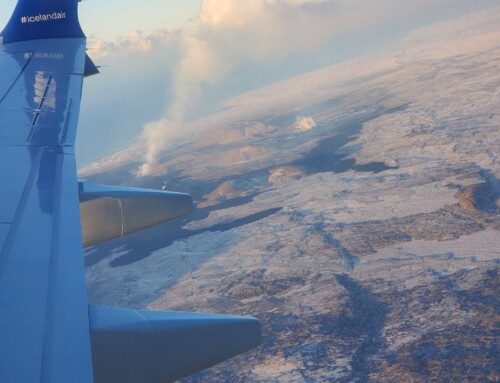
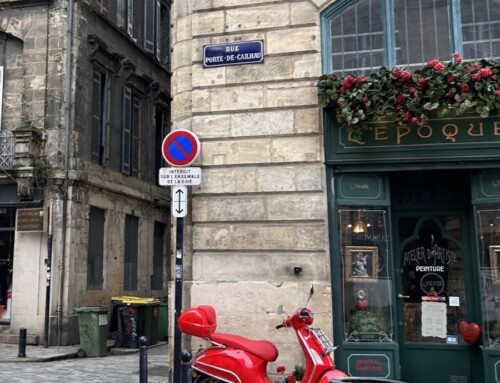
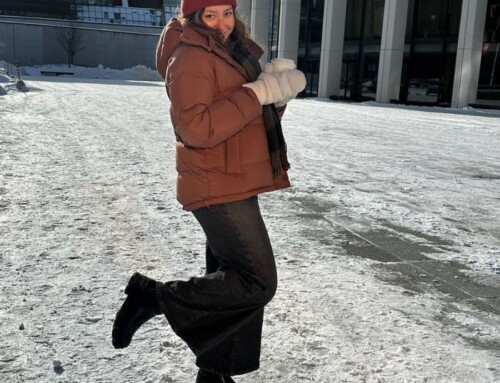
Leave A Comment